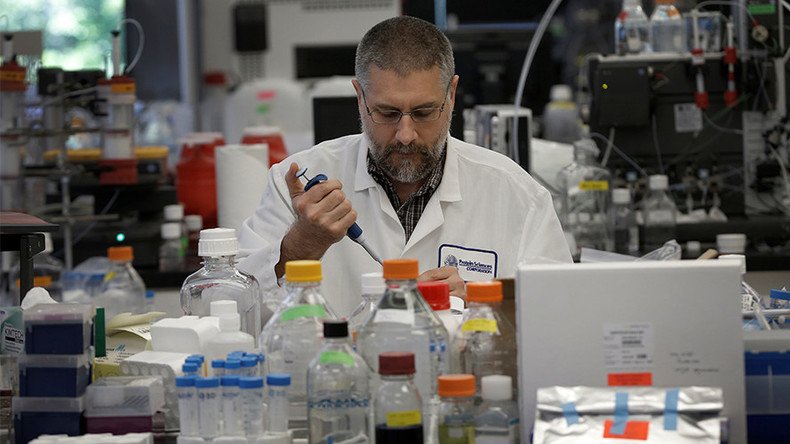War on superbugs could end soon thanks to this new scientific breakthrough

Scientists have developed a new weapon in the fight against superbugs resistant to antibiotics - a breakthrough molecule that reverses antibiotic resistance in multiple strains of bacteria.
Oregon State University researchers worked with international colleagues to create a molecule that can offset superbugs’ ability to destroy antibiotics.
The major development follows the death of a Nevada woman last year when a superbug she contracted in India proved resistant to all 26 antibiotics available in the US.
The Center for Disease Control and Prevention (CDC) confirmed the death earlier this month.
“The isolate was sent to the CDC for testing to determine the mechanism of antimicrobial resistance…[and] confirmed the presence of New Delhi metallo-beta-lactamase (NDM),” it said.
READ MORE: Superbug resistant to every antibiotic available in US kills Nevada woman
The agency has highlighted antimicrobial resistance as “one of the most serious health threats” currently facing the United States.
This latest study, published in the Journal of Antimicrobial Chemotherapy, revealed how a PPMO (peptide-conjugated phosphorodiamidate morpholino oligomer) molecule could inhibit the enzyme, New Delhi metallo-beta-lactamase, or NDM-1, that makes bacteria resistant to a wide range of penicillins.
Lead researcher Bruce Geller from Oregon State University said their research differs from previous studies that worked on only one particular strain of bacteria.
"We’re targeting a resistance mechanism that’s shared by a whole bunch of pathogens," said Geller.
"It’s the same gene in different types of bacteria, so you only have to have one PPMO that’s effective for all of them, which is different than other PPMOs that are genus specific."
Superbugs, antibiotic resistance could kill 10 million by 2050, devastate economies [VIDEO] https://t.co/86e4ofvBrY@ManilaChan
— RT America (@RT_America) November 22, 2016
This new molecule was tested successfully in mice and is expected to be ready for human trials in three years.
“We’ve lost the ability to use many of our mainstream antibiotics,” Geller said.
“Everything’s resistant to them now. That’s left us to try to develop new drugs to stay one step ahead of the bacteria, but the more we look the more we don’t find anything new. So that’s left us with making modifications to existing antibiotics, but as soon as you make a chemical change, the bugs mutate and now they’re resistant to the new, chemically modified antibiotic.”
The scientists believe however that this PPMO could be the answer to the crisis facing the healthcare sector.
“A PPMO can restore susceptibility to antibiotics that have already been approved, so we can get a PPMO approved and then go back and use these antibiotics that had become useless,” Geller concluded.
The World Bank released a report at the end of last year warning that human antibiotic resistance combined with the rise of superbugs could potentially kill 10 million people by 2050 and devastate some countries’ economies.












